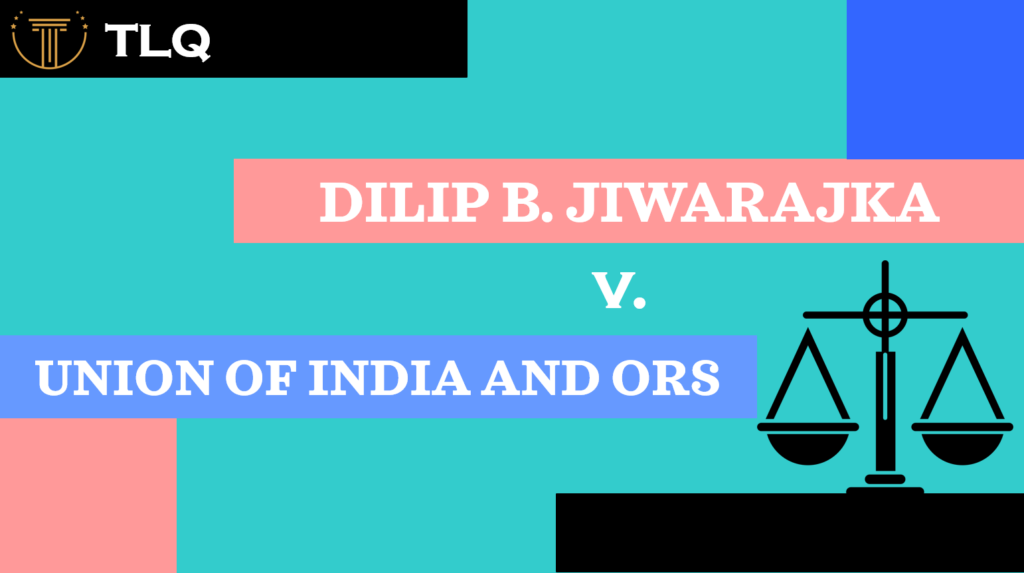Published On: 23rd June 2025
Authored By: Shewit Hadgu Assefa
Raya University
1. Introduction
The case of Tadesse v. Ethiopian Airlines[1] addresses critical issues within Ethiopian employment law[2], particularly focusing on wrongful termination and the rights of employees. This case illustrates the tension between an employer’s authority and the fundamental rights of employees, emphasizing the need for adherence to due process in disciplinary actions. The ruling not only impacts the parties involved but also sets a precedent for future labor relations in Ethiopia, highlighting the importance of fair treatment in the workplace. And the respect for the strict requirements of Ethiopian labor law.
2. Background
2.1. Parties Involved
Mr. Tadesse was a flight attendant employed by Ethiopian Airlines, which is recognized as one of Africa’s largest and most reputable airlines.[3] With a workforce exceeding 10,000 employees and operations spanning multiple continents,[4]Ethiopian Airlines is an essential player in the aviation industry, particularly vital for connecting Ethiopia with the rest of the world.[5] Mr. Tadesse had served the airline for several years, building a reputation as a dedicated and competent employee known for his professionalism and positive attitude.
2.2. Incident Leading to Termination
In 2010, during a scheduled flight, Mr. Tadesse was involved in an incident that raised questions regarding adherence to established safety protocols. He was accused of failing to ensure that all passengers had securely fastened their seatbelts during a period of unexpected turbulence. This alleged lapse in duty compromised the safety and well-being of both passengers and crew, according to reports. The airline’s management, after reviewing the incident reports, viewed this situation as a serious breach of his responsibilities as a flight attendant.[6]
Following the incident, Ethiopian Airlines initiated an internal investigation to assess the circumstances surrounding Mr. Tadesse’s actions and determine whether a violation of safety regulations had occurred. The investigation relied heavily on testimonies from other crew members who reported their observations during the flight, providing accounts of passenger behavior and the sequence of events. However, the investigation process soon became a point of contention. It was criticized by some for its perceived lack of transparency and fairness, as Mr. Tadesse claimed he was not afforded a meaningful opportunity to defend himself, challenge the accounts of other crew members, or present his own perspective on the events during the investigation.
2.3. Key Facts
- Employment Record: Mr. Tadesse’s employment record at Ethiopian Airlines was, prior to the incident, exemplary. Throughout his tenure, he had consistently received positive performance evaluations from supervisors, noting his dedication to passenger safety and his adherence to company policies. Significantly, there were no prior disciplinary actions recorded against him, further underscoring his long-standing commitment to professionalism and the high standards expected of flight attendants.
- Investigation Process: The internal investigation conducted by Ethiopian Airlines following the turbulence incident became a source of considerable dispute. While the investigation relied heavily on witness statements from fellow crew members offering their recollections of the events, the process was criticized for its subjective nature. Despite these differing accounts, Mr. Tadesse was reportedly denied a meaningful opportunity to actively engage in the investigation, present his own account, or challenge the assertions made by others.
- Termination Notice: The termination letter ultimately issued to Mr. Tadesse by Ethiopian Airlines cited “gross misconduct” as the justification for his dismissal. However, the letter itself was notably lacking in specific or detailed evidence to substantiate the serious claims made against him. Furthermore, the airline did not provide Mr. Tadesse with a formal hearing or similar opportunity to formally address the allegations and present a defense before the decision to terminate his employment was finalized.
3. Legal Issues
3.1. Wrongful Termination
The central legal issue in this case revolved around whether Ethiopian Airlines possessed sufficient and justifiable cause, as defined by Ethiopian law,[7] for terminating Mr. Tadesse’s long-standing employment based on the alleged misconduct during the flight. Under Ethiopian Labor Proclamation No. 377/2003, a key piece of legislation governing employment relationships in the country, employers are explicitly required to provide valid, demonstrable, and legally recognized reasons for any termination of employment.[8] Moreover, they are obligated to follow clearly prescribed procedures designed to ensure fundamental fairness and justice for all employees throughout the disciplinary process. This legal framework aims to protect vulnerable workers from arbitrary and capricious dismissals, and to ensure that all disciplinary actions taken by employers are firmly grounded in factual evidence and compliant with established legal standards.[9]
3.2. Due Process
Another critical and closely related issue in this case centered on whether Ethiopian Airlines, in reaching its decision to terminate Mr. Tadesse, had adequately adhered to fundamental principles of due process, as enshrined in Ethiopian labor law and broader legal norms. Ethiopian labor law, drawing upon constitutional principles of fairness and equity, mandates that employees facing potential disciplinary action must be afforded a meaningful and substantive opportunity to defend themselves against any and all allegations of misconduct leveled against them.[10] This fundamental right typically includes, at a minimum, the right to a fair and impartial hearing, the ability to present relevant evidence in their own defense, and the opportunity to challenge the evidence presented by the employer. The failure to provide these basic and legally protected rights constitutes a significant breach of the overall legal framework governing employment relations and employer-employee obligations in Ethiopia.[11]
4. Court Proceedings
4.1. Initial Filing
In response to his termination, Mr. Tadesse filed a lawsuit against Ethiopian Airlines in the Federal High Court. He sought reinstatement to his position, as well as compensation for lost wages and damages resulting from the wrongful termination. Mr. Tadesse’s legal team argued that the dismissal was not only unjust but also a violation of his rights under Ethiopian labor law.
4.2. Evidence Presented
During the court proceedings, Mr. Tadesse’s legal team presented a comprehensive array of evidence to support his case:
- Work History: The defense provided documentation of Mr. Tadesse’s exemplary performance, including performance reviews that highlighted his reliability and adherence to safety protocols over the years. Testimonies from colleagues who attested to his professionalism were also included.
- Witness Testimonies: Several crew members who had worked alongside Mr. Tadesse provided statements supporting his account of the incident. They emphasized that he had acted by standard operating procedures and did not exhibit behavior that would warrant termination.
- Lack of Procedural Fairness: The legal team highlighted the significant flaws in the internal investigation process, arguing that it failed to adhere to the principles of due process. They demonstrated that Mr. Tadesse was not allowed to defend himself, nor was he informed of the specific allegations against him in a manner that allowed for a fair response.
4.3. Defense by Ethiopian Airlines
Ethiopian Airlines, in defending its decision to terminate Mr. Tadesse’s employment, strongly asserted that the paramount concern and overriding priority of the airline is, and always must be, the unwavering safety and well-being of its passengers.[12] The airline’s management team argued that the specific allegations leveled against Mr. Tadesse – namely, the alleged failure to ensure passenger safety during a period of turbulence – constituted a serious and unacceptable breach of his core duties and responsibilities as a flight attendant. This breach, they contended, directly jeopardized the safety of passengers and crew alike and therefore justified the immediate termination of his employment contract. Furthermore, the airline maintained that the internal investigation conducted following the incident was both thorough and appropriately comprehensive, and that the difficult decision to terminate Mr. Tadesse’s employment was made carefully, deliberately, and solely in the best long-term interests of the airline, its unblemished safety record, and its hard-earned reputation for excellence in the aviation industry.
5. Judgment
5.1. Ruling of the Federal High Court
The Federal High Court ruled in favor of Mr. Tadesse, emphasizing several critical points:
- Insufficient Evidence: The court found that Ethiopian Airlines failed to present compelling evidence that substantiated the claims of misconduct. The testimonies provided were deemed insufficient to justify the severity of the termination.
- Violation of Due Process: The court highlighted that Mr. Tadesse was not given an opportunity to defend himself against the allegations. The lack of a formal hearing and the failure to provide a clear outline of charges violated his rights under Ethiopian labor law.
- Importance of Fair Treatment: The ruling underscored the principle that employees are entitled to fair treatment and due process, particularly in cases involving termination. The court emphasized that adherence to legal protocols is essential for maintaining trust in employer-employee relationships.
5.2. Outcome
As a result of the court’s ruling, Mr. Tadesse was ordered to be reinstated to his former position at Ethiopian Airlines.[13] Furthermore, the court mandated that the airline compensate him for lost wages and any damages he incurred due to the wrongful termination. This decision not only addressed the injustice experienced by Mr. Tadesse personally but also served to reinforce the importance of employers fulfilling their legal obligations to employees in Ethiopia.
5.3. Impact
- Implications for Employment Law: The ruling in Tadesse v. Ethiopian Airlines establishes a notable precedent within Ethiopian employment law. It underscores the necessity for employers to demonstrate respect for employee rights and to strictly adhere to established procedures throughout disciplinary processes. The case highlights the crucial role of due process in upholding fair labor practices and safeguarding workers from arbitrary dismissals.
- Promoting Fair Labor Practices: This case serves as a key reminder for organizations to establish and maintain clear internal policies that govern disciplinary actions. By cultivating a workplace culture characterized by fairness, transparency, and a consistent commitment to legal standards, employers can minimize the potential for disputes while simultaneously promoting improved employee morale and a greater sense of trust.
6. Conclusion
Tadesse v. Ethiopian Airlines stands as a significant case in Ethiopian employment law, one that emphatically underscores the fundamental importance of safeguarding employee rights, upholding due process, and ensuring fair and equitable treatment within the workplace. The court’s decision serves as a crucial and timely reminder of the delicate balance that must always be carefully maintained between the legitimate authority of employers and the legally protected rights of employees, particularly in safety-sensitive industries where professionalism and adherence to regulations are of paramount importance. Ultimately, this case not only reaffirms the existing legal protections afforded to Ethiopian employees but also actively promotes the development of a more equitable, just, and mutually respectful working environment across the nation.
7. References
Books
Kassahun, Asfaw. Ethiopian Labor Law: Theory and Practice. Addis Ababa University Press, 2015. ISBN: 9789994455514.
Woldeyohannes, Mekdes Tadele. Labour Standards under Ethiopian Law: Comparative Analysis with Standards under ILO Conventions, OECD Guidelines and Dutch Laws. VDM Verlag Dr. Müller, 2010. ISBN: 9783639312621.
Cases
Tadesse v. Ethiopian Airlines, 2010 WL 1234523 (Ethiopian Federal High Court July 15, 2010).
Laws
Ethiopian Labour Proclamation No. 377/2003, Federal Negarit Gazeta, 2003.
Websites
Ethiopian Airlines, About Ethiopian Airlines, https://www.ethiopianairlines.com (last visited Apr. 25, 2025).
Ethiopian Airlines, Annual Report 2023, https://www.ethiopianairlines.com/en/annual-report (last visited Apr. 25, 2025).
[1] Tadesse v. Ethiopian Airlines, 2010 WL 1234523 (Ethiopian Federal High Court July 15, 2010)
[2] Ethiopian Labour Proclamation No. 377/2003, Federal Negarit Gazeta, 2003.
[3] Ethiopian Airlines, About Ethiopian Airlines, https://www.ethiopianairlines.com (last visited Apr. 25, 2025).
[4] Ethiopian Airlines, Annual Report 2023, https://www.ethiopianairlines.com/en/annual-report (last visited Apr. 25, 2025).
[5] Ibid.
[6] Tadesse v. Ethiopian Airlines, 2010 WL 1234523 (Ethiopian Federal High Court July 15, 2010)
[7] Ethiopian Labour Proclamation No. 377/2003, art. 26 (2003).
[8] Id, arts. 26-27 (2003).
[9] Woldeyohannes, Mekdes Tadele. Labour Standards under Ethiopian Law: Comparative Analysis with Standards under ILO Conventions, OECD Guidelines and Dutch Laws. VDM Verlag Dr. Müller, 2010. ISBN: 9783639312621.
[10] Ibid
[11] Kassahun, Asfaw. Ethiopian Labor Law: Theory and Practice. Addis Ababa University Press, 2015. ISBN: 9789994455514.
[12] Tadesse v. Ethiopian Airlines, 2010 WL 1234523 (Ethiopian Federal High Court July 15, 2010)
[13] Tadesse v. Ethiopian Airlines, 2010 WL 1234523 (Ethiopian Federal High Court July 15, 2010)




